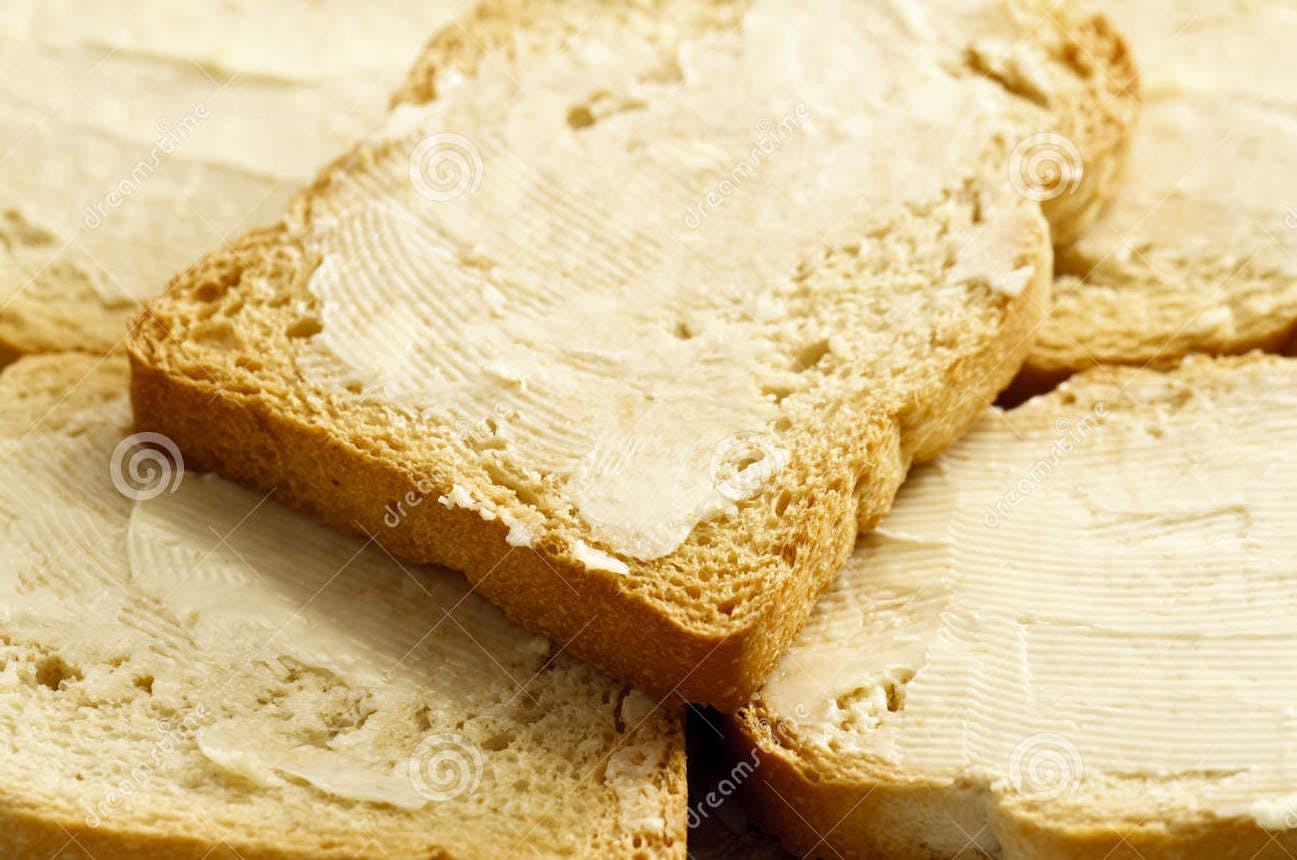Let me tell you right now: I am not a cook. On the rare occasion that I do, the food typically ends up in the garage can - usually burnt.
Tonight at 1 AM, I wake up hungry and decide to make a grilled cheese sandwich. I've seen my Mom do it many times. How hard can it be?
Cooking A Grilled Cheese Sandwich - Take One
I get two slices of bread, two slices of Kraft American cheese, and a vat of butter - actually margarine.
I figure that I want the bread browned, and high volumes of grease make things browned (I was thinking of French fries). So that means lots of butter.
And I mean lots of butter. I spread enough butter on the two slices that there is an entire butter layer above the bread.
I cook the sandwich and turn it over three times to get it browned evenly – if you can call it that.
Lessons learned: Butter melts. Melted butter makes bread shrink. Melted butter also makes the bread soggy.
So what I end up with is a nicely cooked small, soggy as hell sandwich. The cheese melted perfectly, but the sandwich was so soggy that I couldn't eat it with my hands. I have to use a fork.
Cooking A Grilled Cheese Sandwich - Take Two
A variety of recipes use Pam cooking spray. Why even use butter when you can go with Pam instead?
Lessons learned: Do not use Pam for cooking grilled cheese sandwiches. It burns the bread in less than 30 seconds and, thus, doesn't melt the cheese either.
I take two bites of this creepy sandwich and toss it in the garbage can.
Cooking A Grilled Cheese Sandwich - Take Three

I decided that my obsession, or overuse, with butter is wrong and needs to be rethought. Why not butter the bread, like usual, with just enough to cover the bread?
I cook the sandwich and turn it over three times to get it browned evenly. I could have done it with only one turn if I was a pro.
It turns out perfect - just like Mom used to make.
Cooking A Grilled Cheese Sandwich - Takeaway
This whole process tonight is just like computer programming. You have no idea how to do it initially, but you get a working and tasty product with trial and error.

